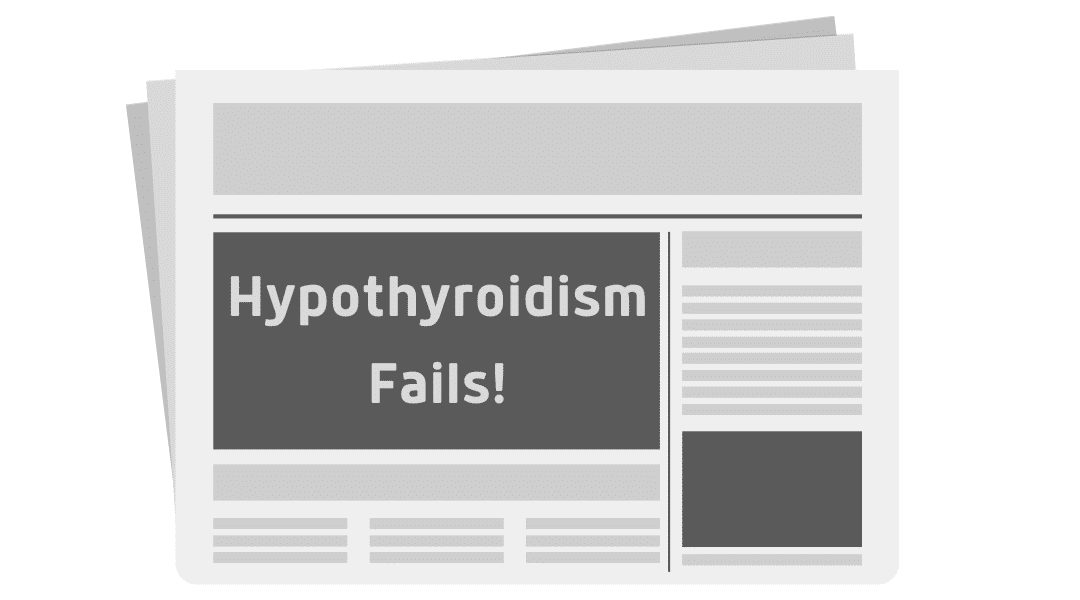Avoid common hypothyroidism fails! Based on my experience with many hypo-thyroid patients (many of whom had Hashimoto’s thyroiditis), here’s what you should do and what you should not do if you have hypothyroidism.
Let me boil it down: don’t just stop with a standard medical diagnosis of hypothyroidism. There are other factors that can be missed. This is what I call: a fail. In this case: “hypothyroidism fails”. I make sure to evaluate and handle all the things that can make hypothyroid symptoms worse. Below is a patient case study that exemplifies the hypothyroidism fails that I have seen in my practice and 6 ways to fix them.
The Most Common “Hypothyroidism Fails”:
Here is a case study that will show doctors can miss things when it comes to hypothyroidism. When Jen came to my office four weeks ago, she said that her main complaint was that she had Hashimoto’s thyroiditis. With that, she had low energy, low mood, and disturbed digestion. I took a look at the notes that she brought with her from her medical doctor’s office, especially all of her lab tests.
Hashimoto’s Diagnosis
I was pleased that the medical doctor had properly diagnosed Jen with Hashimoto’s thyroiditis, noting that not only did she have an elevated TSH, but she also had elevated anti-TPO and anti-thyroglobulin antibodies. Why is this good? Because 90 to 95% of hypothyroid cases are due to Hashimoto’s thyroiditis.
Why is this important? Because Hashimoto’s thyroiditis is an autoimmune disease, meaning that the problem is in the immune system, and the thyroid is damaged as a consequence. So unless you normalize immune system response, you’ll never get better if you have Hashimoto’s. Without knowing this, proper treatment is impossible.
Iron Levels
However, upon looking at her labs, I noticed that it looked like she was slightly anemic and nobody had ever performed a proper iron panel. Why not? I wondered. Not properly investigating iron levels is one of the most common “hypothyroidism fails”. Why is this so important? Because without proper levels of iron, meaning not too much or too little iron, your body does not convert T4 into T3 properly, the active thyroid hormone. Also, iron deficiency and anemia symptoms overlap with hypothyroid symptoms, primarily fatigue, and depression.
Vitamin D Levels
I also noticed that nobody had measured vitamin D levels. Why not? I wondered. This hypothyroidism fail #2. Why is this important? Because all my patients with Hashimoto’s have been vitamin D deficient. Adequate levels of vitamin D, between 30 and 55, tend to normalize the immune system’s response. When you optimize vitamin D levels in Hashimoto’s patients—not too much, not too little—just the right amount!—they feel better.
Vitamin B12 Levels
Nobody ever measured a B12 level. Why not? I wondered. This is hypothyroidism fail #3. Why is this important? Because low B 12 levels are associated with fatigue, depression, and nerve pains. Plus low B12 levels are very common, and if they’re so bad that they damage the nervous system, they are irreversible! Fatigue and depression are two symptoms that overlap with hypothyroid symptoms. The question becomes, is it hypothyroid, or B 12 deficiency that is causing that depression and fatigue, or both? We will know in about three months.
Dietary Guidance
Also, curiously, the medical doctor had not addressed dietary issues either, even though it is known that over 90% of autoimmune disease patients respond to dietary therapy, specifically cutting out grains, dairy, and sugar. Why did they overlook this? I wondered. Meet hypothyroidism fail #4.
6 Ways to Find Success (and avoid Hypothyroidism Fails)
If you’re still reading this, you’re probably thinking about yourself or a loved one who has a thyroid problem and would like to know more about how you can help yourself or them more. Here’s an easy checklist when dealing with thyroid problems in order to get the best treatment plan possible. We can assess all these things with a proper blood test, except for food allergies, where it’s better to use an elimination diet and/or muscle testing. Things to evaluate success in thyroid cases are, and order:
1. Make sure that your Blood Sugar Levels are optimal.
Too much blood sugar and insulin destroys the thyroid and decreases the conversion of T4 to T3, the active thyroid hormone. Too little blood sugar tends to make your body create more stress hormones, primarily cortisol, in order to raise blood sugar. These stress hormones also decrease thyroid hormones. Most doctors only check fasting blood sugar to assess blood sugar levels. This is a fail. In order to properly assess blood sugar levels, patients must measure fasting blood sugar, fasting insulin, and hemoglobin a1c. These three together describe the blood sugar situation at the moment of testing, what the average blood sugar is over the past three months, and how the patient’s body responds to insulin. You must determine all three in order to properly assess blood sugar handling. Here are some tips to start cutting sugar out of your diet.
2. Check for Food Sensitivities.
Most people think that if they eat something that they’re sensitive to, they will notice this right afterward, in their digestive symptoms. While this is true for some people, for most people with food sensitivities (it’s been estimated 80%), there are no digestive symptoms.
Food sensitivities primarily destabilize the Immune system, And you guessed it, make autoimmune diseases much worse! I would venture to say that near 100% of autoimmune diseases have food sensitivities as a core issue. The question is, how do you know what food you’re sensitive to?
Well, there are three ways. Yes, there are blood tests for it. We use Cyrex blood tests for food sensitivities. However, they are not my favorite. Why not? Because I’ve seen people with obvious food sensitivities test negatively on Cyrex blood tests. They are also expensive.
We also use muscle testing to figure out what foods people are sensitive to. This helps to show the person by a muscle response test what they are sensitive to. This system works best if you are currently consuming the problem food.
The actual gold standard in food sensitivities is food elimination diets. The one is called the Paleo Reset. With this diet, you strictly cut out dairy, grains, legumes, sweeteners, refined foods, industrial seed oils, sodas and diet sodas, alcohol, and all processed sauces and seasonings. What you’re left with are meats vegetables, fruits, nuts, and seeds. Do this for one month and see how you feel. Most people feel markedly better and realize that certain foods, usually grains, dairy, and sugar, were making them sick. When you find out which foods you are sensitive to based on a food elimination diet, do not re-introduce them unless you are under the supervision of a qualified functional medicine doctor.
3. Check for optimal Iron Levels.
Too much iron causes inflammation and can feed chronic infections, a problem commonly seen in Hashimoto’s. Too little iron can lead to anemia, which can decrease the conversion of T4 into T3, and also cause symptoms such as fatigue and weakness, just like hypothyroidism. Medical doctors rarely test for optimal iron levels and anemia. To do so, you have to run what’s called a complete iron panel, and a complete blood count with differential. Only then can a proper assessment be made.
4. Check for optimal Immune System Function.
Most people with hypothyroidism, especially Hashimoto’s, have some sort of chronic infection, be it a fungal, viral, bacterial, or parasitical infection. The complete blood count with differential as mentioned above can help in assessing the immune system but only if viewed from a Functional Medicine point of view rather than looking at the standard lab reference ranges.
5. Make sure Vitamin D Levels are balanced.
Vitamin D assists in modulating the correct immune system response, which is critical in patients with Hashimoto’s and hypothyroidism. Simple blood tests will tell you whether you have too much or too little vitamin D. Contrary to popular belief, you can actually have too much vitamin D. Research shows that vitamin D levels should be between 30 and 55. Also, if you’re going to consume vitamin D, make sure that you pair it with the active forms of vitamin A and K.
6. Check for optimal Vitamin B Levels
B vitamins assist in generating energy for the body and making new blood cells. Without optimum levels, common symptoms are fatigue, depression, anxiety, and nerve pains. We can assess them easily using a blood panel using a complete blood count with differential, homocysteine levels, and serum B12 levels.
There you have it. If you handle these six things, your Hashimoto’s symptoms as well as your lab tests, will improve dramatically, or all together! For those who would like a personalized approach, or who are dealing with a specific problem that requires a closer look, consider our Nutrition Response Testing or Functional Medicine Programs. Sincerely yours, Dr. Keith Sheehan
Related Articles
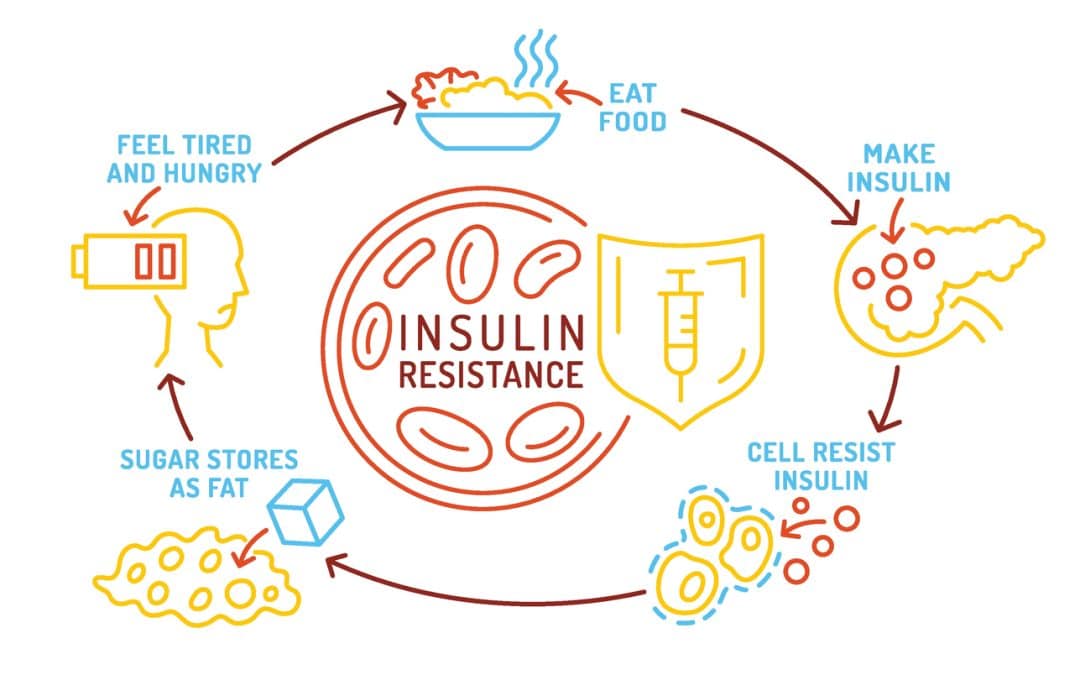
Insulin Resistance Explained: Early Signs, Functional Testing, and Natural Solutions
One of the things we talk about often in our office is a monster of a problem called insulin resistance—and for good reason. It's one of the most common yet overlooked root causes of issues like fatigue, stubborn weight gain, brain fog, hormone imbalances, and more....

Laura Sheehan’s Story: My Life in Holistic Health Care
Laura Sheehan's Story: My Life in Holistic Health Care Meet Laura Sheehan, an accomplished Nutrition Response Testing™ practitioner with a Master's in Applied Clinical Nutrition. She happens to be married to the brilliant Dr. Keith Sheehan, the proud owner of...
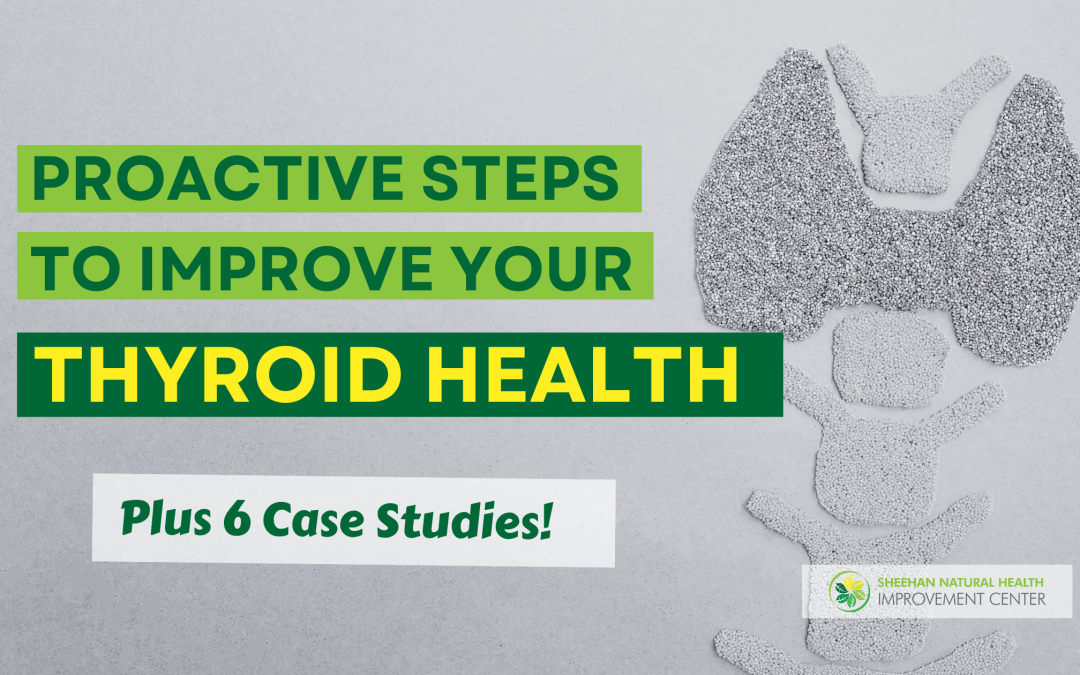
Proactive Steps to Improve Your Thyroid Health (Plus 6 Case Studies!)
Table of Contents1. Understanding Your Thyroid2. How Low Thyroid Function Affects the Body3. Reduce Your Exposure to Toxins4. Avoid Foods You Are Sensative To5. Support Your Immune System6. Optimize Your Liver and Gallbladder Function7. Rule Out Scar Interference8....

7 Keys to Restoring Female Hormonal Balance Naturally
Female hormonal symptoms. They’re rampant! At almost every stage of life, women are subject to all kinds of symptoms related to their monthly (or lack of) hormonal fluctuations. Too much estrogen, estrogen dominance, low progesterone, high male hormones, too much...
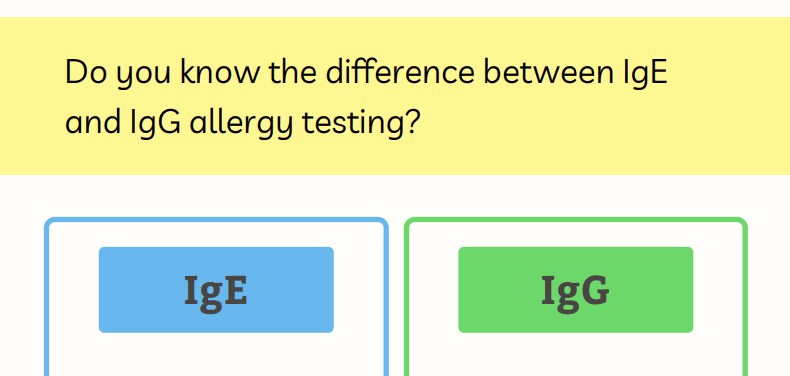
Not All Allergy Testing Is The Same: IgE and IgG Differences
Most doctors will run IgE tests to find any severe reactions to foods, such as breathing issues or hives. IgG tests show delayed, less severe reactions to foods such as eczema patches and/or stomach issues. Food sensitivities may be less severe, but they will wreck...
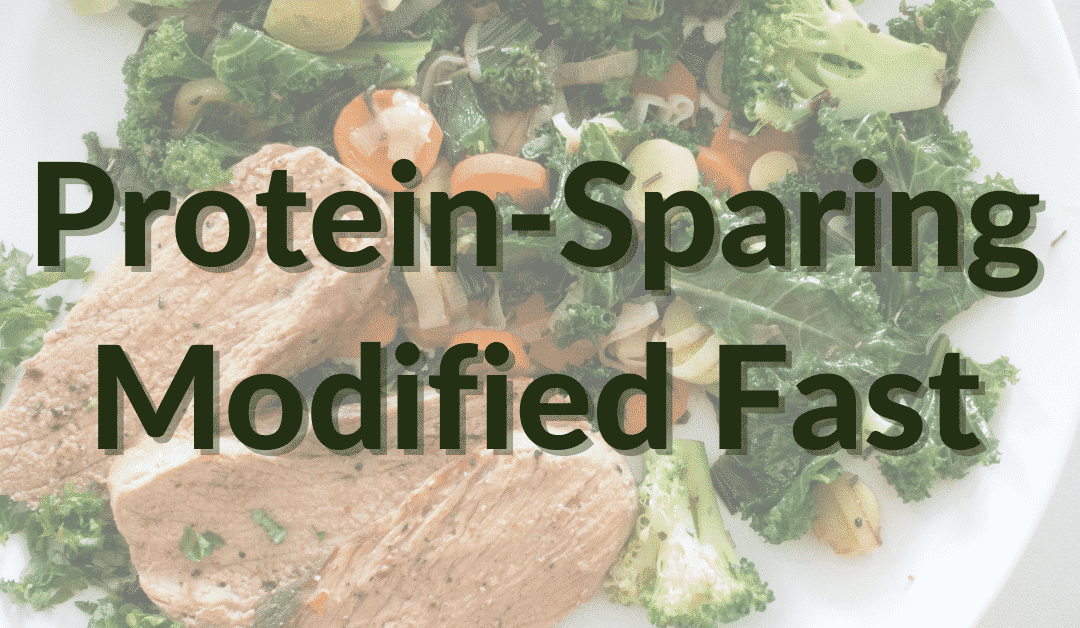
Protein-Sparing Modified Fast for Weight Loss
Hello Friends in Natural Health! Sorry I haven’t sent an update for a while. Keith and I have been busy implementing some more systems geared toward blood testing (to combine with Nutrition Response Testing). Adding the blood testing has helped us with our own health,...

New Years Offer At Sheehan Natural Health
Merry Christmas and Happy New Year! Greetings from Dr. Sheehan and Laura! I hope you had a nice holiday season, spent some time relaxing with the family, and so on. Since both Laura’s and my family live out of state, we stayed here and concentrated on our hiking...
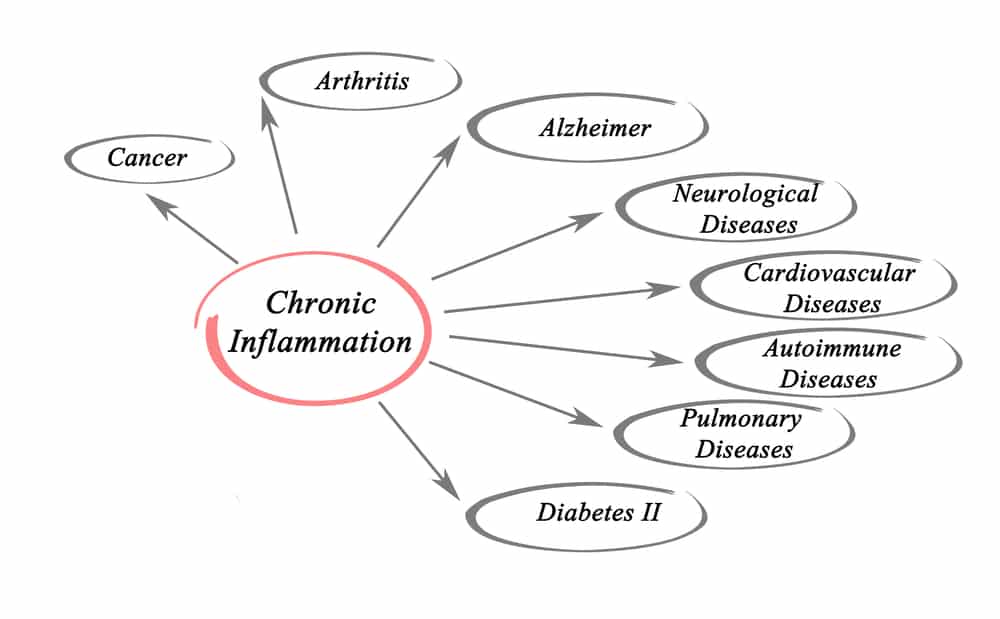
How to Figure Out If You Have Inflammation, and How Much
One of the things that we find all the time in our patients is that they have more inflammation than is healthy. If you look at current studies, and research articles on health, you will see that inflammation is a big part of just about all disease processes,...
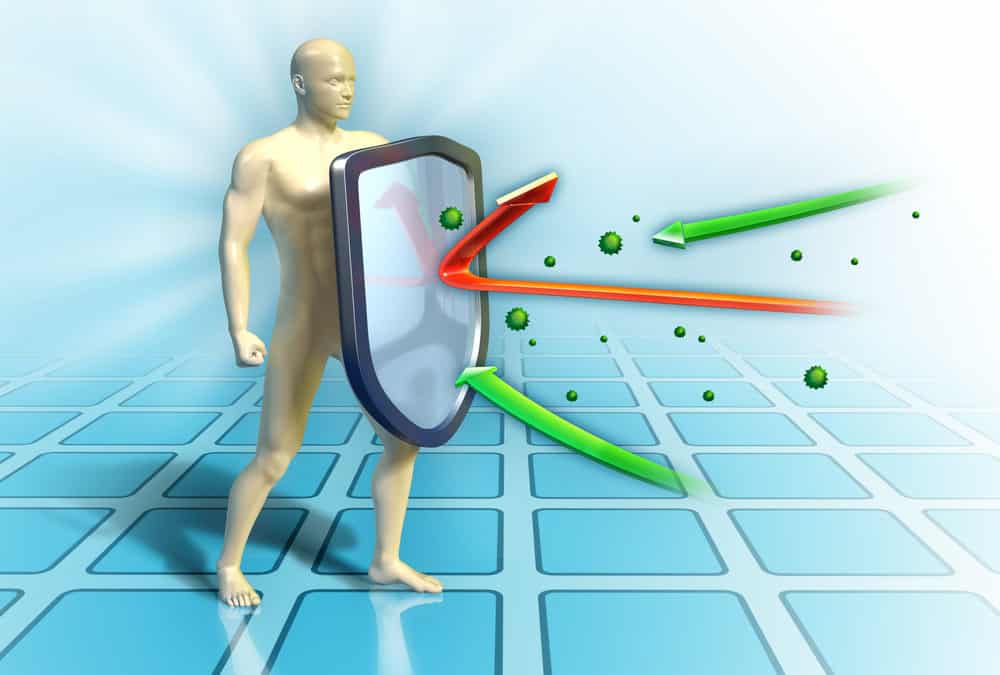
How Do I Keep My Immune System Strong?
The most common question that we get here in the office these days is “how do I keep my immune system strong?” The answer is quite easy: cut out what weakens it and increase what strengthens it. Here's What Weakens The Immune System 1. Sugar Sugar comes in many forms,...

The Page Diet: The Most Effective Diet For Overall Health
What is the Healthiest Diet? If you have been a patient of ours, you probably know there are many dietary strategies that can work very well to get you healthier and feeling better. The best diets out there minimize or eliminate processed foods and stress regular...

